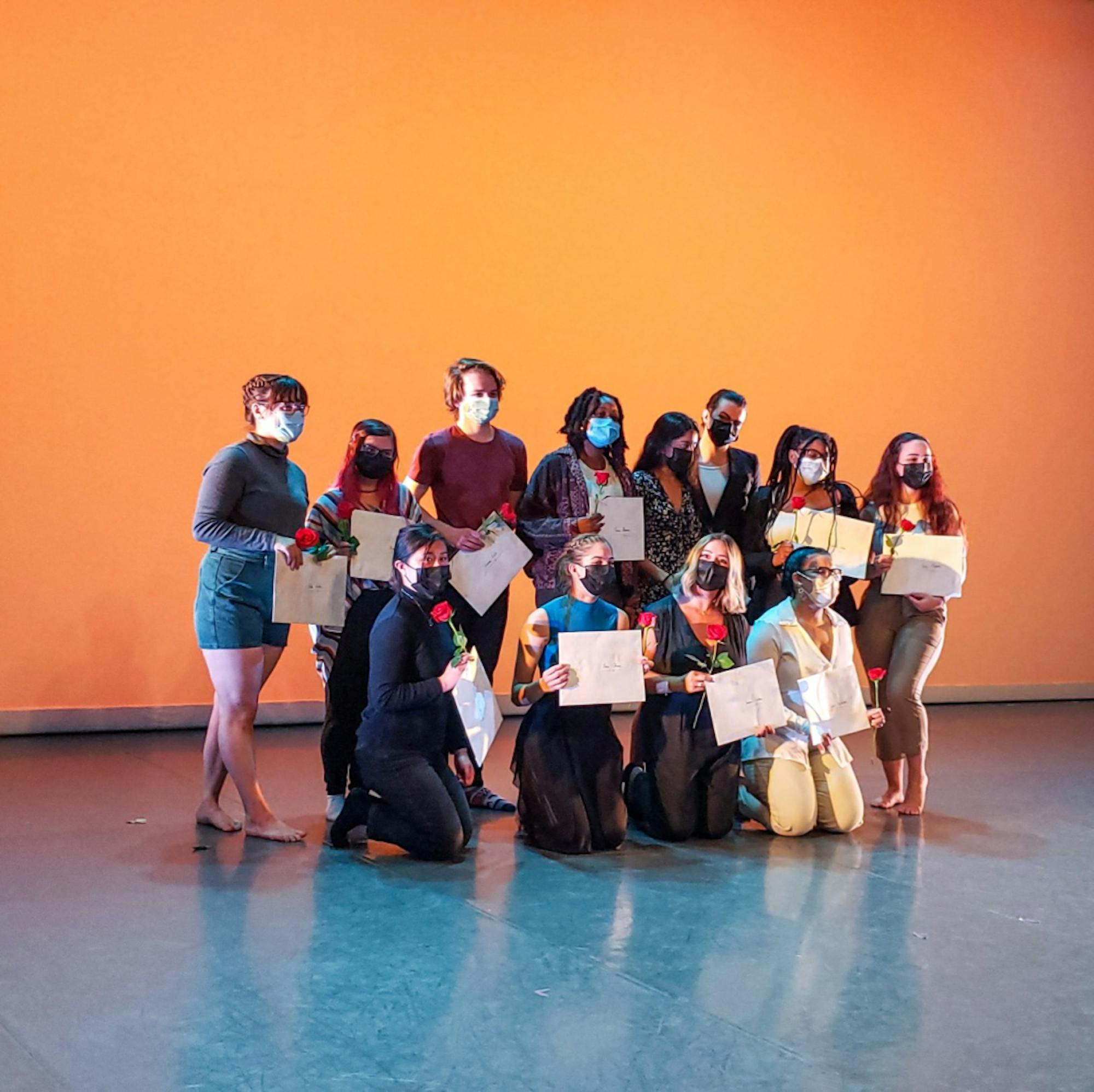On April 23 and 24, the Tufts Department of Theatre, Dance, and Performance Studies presented this year’s Spring Dance Concert, a performance dedicated to sharing the senior capstone projects of its hard working students. With over 20 student dancers across 10 unique performances, each choreographed by a graduating Tufts senior, this year’s concert provided viewers with a final opportunity to witness an impressive display of the chemistry and relationships developed within the department over the past four years.
These capstone projects, choreographed by seniors themselves with varying influences across a variety of dance, music and narrative genres, represent an artistic climax of their personal experiences and thoughts. Speaking with the Daily, Laporsha Dees, a dance minor from Hartford, Conn., took the time to reflect upon the processes involved in developing her senior capstone project, titled “Fractured Progress.” Discussing the themes behind her work, she stated that her project “has been a culmination of my last four years, and me coming out of it, like a new person.”
For those unfamiliar with the timeline involved in developing a senior capstone project, Dees explained that she, like other seniors, first scheduled a meeting with department advisors the semester prior.
“They were basically saying, ‘You should just come up with an idea,’” Dees said.
Students are then offered the opportunity to pursue one of three types of capstone projects: a performance capstone, a choreographic capstone or a research project. Dees chose a choreographic capstone project, which she claims “turns out to be a bit of a struggle, but I kind of fell in love with it.”
Then, at the start of the semester, students begin to search for their projects’ dancers through auditions as they continue to refine their original ideas. As these dancers practice the project’s choreography throughout the semester, they also have the opportunity to receive academic credit for their time dedicated to the work. Eventually, each senior capstone project evolves over multiple iterations, and the final product of each student’s hard work is displayed at the Spring Dance Concert.
In these personal displays, students are provided with ample creative freedom and encouraged to design their projects to their own liking. When discussing her favorite artistic styles of theater and dance, Dees explained that “my background is hip-hop, Caribbean dance, and contemporary and liturgical dance.” Thus, she claimed that “Fractured Progress” primarily functions as “a modern contemporary piece.” As a result, the final performances represent a student’s preferred mode of expression and are indicative of various stylistic choices that were incorporated into the project.
Reflecting on her time as a dance minor at Tufts, Dees said that she “loved every moment, every class [and] every person in the dance department.”
As she spoke about the department’s consistent support and commitment to its students, she remarked that their work has provided its members with “a healthy environment for dancing, and for people who aren’t used to dancing.”
When asked about potential advice for future students interested in pursuing a dance minor, Dees only had one thing to say: “My advice is to just go for it.”
After years of dancing experience, she enthusiastically promoted the supportive nature of her peers in the department.
“If you feel like you’re not as experienced as everybody else, that’s fine,” Dees said.
With a variety of students in the department, ranging in character and technical ability, Dees claimed that students considering the minor will have the important chance to “see dance from a different perspective.”
In addition to its final send-off for seniors, the concert also featured dances choreographed in the Tufts course titled Afro-Haitian Dance: From Roots to Stage, organized by Jenny Oliver. “Tout Nasyon,” the course’s performance, began with an engaging dialogue between its 11 student dancers as they reflected on their cultural origins and differences and how these elements have consequently influenced their identity. Then, once “Tout Nasyon” by RAM played on stage, the performers’ began to move in sync with the song’s upbeat rhythm. As they danced in unison, their captivating movements immersed audience members within an impressively choreographed performance with deep cultural roots and boundaries.
Overall, this year’s Spring Dance Concert represented a final culmination of years’ worth of emotions, challenges, accomplishments and growth among its student performers and faculty. The variety of performances across multiple styles and genres demonstrate the creativity of the department and its members’ ability to collaborate. In a year filled with hardships from the COVID-19 pandemic, the Spring Dance Concert brought Dees’ own words to life, reminding the Tufts community that “dancing is surviving.”






